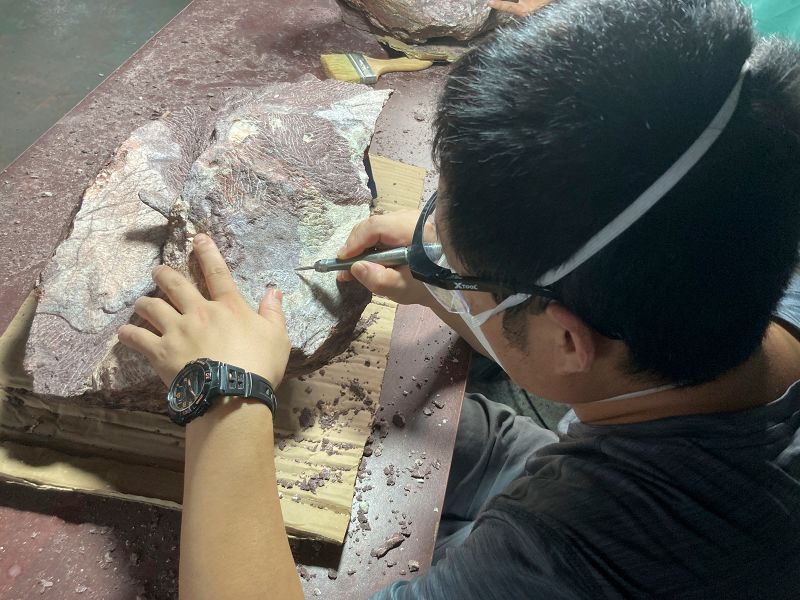Dinosaur fossils have been discovered for the first time in Hong Kong, on a remote island in the financial capital’s countryside.
The fossils were found on Port Island, an uninhabitable expanse of rocks in the northeastern waters of the city, by Hong Kong’s Agriculture, Fisheries and Conservation Department in March, the government said in a statement Wednesday.
Researchers have determined that the bone fossils likely originated from a “large aged dinosaur” from the Cretaceous period –– an era more than 145 million to 66 million years ago that followed the Jurassic period.
Hong Kong’s Secretary of Development Bernadette Linn said that “the discovery is of great significance and provides new evidence for research on palaeoecology in Hong Kong,” the statement read.
Since 1979, Port Island has been designated as a site of special scientific interest and is also part of Hong Kong’s UNESCO Global Geopark –– a cluster of islands protected by an international framework and primarily used for education and sustainable development.
“Further studies will have to be conducted to confirm the species of the dinosaur,” officials said, adding that Port Island and the wider country park will be closed for further excavations and research. The dinosaur fossils will also be on public display at Hong Kong’s Heritage Discovery Centre from Friday onwards.
Experts in paleontology say the landmark discovery is a big deal for Hong Kong, a city with a complex geological history and ever-changing weather patterns.
The only “dinosaur-era things” Hong Kong has found so far are plants and fish, he said.
Pittman also noted that the discovery of body fossils is rare regionally, as skeletal remains are not typically found in southern China, known instead for its dinosaur eggs.
Since 2020, however, researchers from the Chinese Academy of Sciences have found dinosaur remains buried shallowly across nine localities in the southwestern province of Yunnan and have carried out excavations.
Earlier this year, paleontologists in China discovered the fossils of a Gandititan cavocaudatus at a construction site in Jiangxi province. The fossils, estimated to date back 90 million years, were part of a new dinosaur species previously unknown in East Asia.
It’s unclear how long Port Island will remain closed to visitors.
“If they end up finding a whole skeleton of a big dinosaur or two dinosaurs, they might have to go back next summer, and the summer after that,” Pittman said.



























